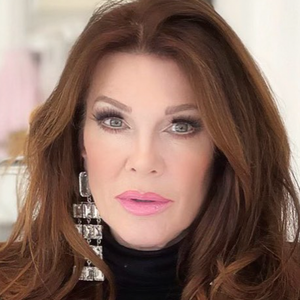
CONTACTStaffCAREER OPPORTUNITIESADVERTISE WITH USPRIVACY POLICYPRIVACY PREFERENCESTERMS OF USELEGAL NOTICE
© 2024 Pride Publishing Inc.
All Rights reserved
All Rights reserved
By continuing to use our site, you agree to our Private Policy and Terms of Use.
"
>
"
data-page-title="
Seven years ago, when my grandmother JoAnn was first diagnosed with Alzheimer's, I couldn't imagine anything less fair. At the time, I composed a mental list of all the people I knew who could lose their minds without anybody noticing. It amounted to scores of bores I'd never heard say one original thing. While my grandmother, on the other hand, was the genius of the cocktail party, a Texas Auntie Mame, who always seemed poised with a staggering, stiletto quip.
To me, JoAnn was more than a person. She was the embodiment of a sensibility. When I was a small boy, we'd spend hours beside her player piano dancing to zippy 1920s songs like "Toot, Toot, Tootsie" and "Nagasaki" and "Don't Bring Lulu." She had a pink telephone that rang "Everything's Coming up Roses" when anybody called. At restaurants, she'd tip the band to play "Hello, Dolly!" and then, she'd table-hop, until she found a man whose Louis Armstrong impression was worthy of accompanying her. She was a life force, a diva, and very likely the reason I had guts enough to come out of the closet, become an artist, and move to New York City when I was 18-years-old.
So during the winter of 2005, in those early months of JoAnn's illness, I felt as though I'd been the victim of a bait and switch, as though something magical, of infinite value, had been stolen from me, and replaced with a cardboard copy. At the time, I was probably angrier than I've ever been. I was also the most confused. Because though I felt I'd lost my grandmother, she was, at least in a physical sense, right there, present and accounted for.
When I was 16, JoAnn told me, "Sad lives make funny people." At the time, this remark had just sounded like one more zinger. But eventually I came to consider it the distillation of her philosophy. Humor was the way she'd coped with every unpleasant thing in her life, from her long estrangement from my mother, her only child, to the onset of a crippling disease. It seems that my mother and grandmother had always hated each other, and I mean, from the womb. They were too much alike; too big for the same screen. With them, it was always Bette Davis vs. Joan Crawford, and nobody ever won. But as JoAnn's Alzheimer's advanced, she forgot all of that, and thanks to my mother's good grace, and some heavy-duty arm-twisting on my part, they were able to meet each other for the first time again. And guess what? They went nuts for each other.
By this point, my grandparents had moved from Houston to our family farm outside Nashville. So, in the final years of JoAnn's life, my mother and I flew back and forth from our homes in California and New York, taking turns caring for her. During this time, as I watched my mother, a tough cookie, take heroic care of her mother, I was able to observe the process by which a family is healed. The good news is that, in our case at least, it's a process for which gay guys and Southern belles are particularly well suited.
In Tennessee, Mother started her day by gently brushing JoAnn's hair, and tenderly applying her makeup with soft mink brushes. She insisted that JoAnn have her "face" done every morning, and sent me flying across Manhattan -- from Bergdorf's to Barney's and back again -- with elaborate shopping lists of arcane moisturizers and astringents not to be found in the city of Nashville. "Believe you me," Mother said, "they're as vital as any old medicine." And as I watched my mother become a cross between Florence Nightingale and Mary Kay, I had occasion to think about how deep superficiality can be, about how genuine artifice often is, and how tiny, workaday actions can add up to miracles. On the most literal level, my mother was just applying cosmetics, but in the big, rushing narrative of our lives, she was closing the circle, breaking the cycle, giving to my grandmother so much more than she'd been given as a little girl. Unpacking her cosmetics, Mother resembled a magician unloading a bag of tricks, and as she worked, she'd speak softly, "Mama, now I'm lining your eyes... I'm rouging your cheeks... painting your lips. Remember when you taught me how to do this? When I was a little girl? Remember, you taught me to dab my bottom lip just so?"
I feel like this is a lesson that gay guys know by heart. As a community, we're well acquainted with the power of fashion, and the unshakable grip of the desire to protect those you love by managing appearances. The further my grandmother slipped away, the more it mattered that she was treated like a person. And to ensure this, the finest arrow in our quiver, mother's and mine, was Maybelline -- or better yet, Guerlain.
It's difficult to overstate the impact my grandmother's Alzheimer's has had on my worldview, hard to articulate the extent of its influence on my thinking. The most basic conclusion it's prompted is that as long as you're alive, anything is possible. That sounds almost unbearably Pollyanna-ish, I know. It's embarrassing even to write. But I'm not striving for optimism here. What I mean is that since life has an agonizing tendency to offer us the best and the worst at the same time, to give us what we ask for in an utterly unforeseen form, even fairly predictable outcomes prove unrecognizable upon arrival. Back in 2005, when I first learned of JoAnn's illness, I was terrified -- for her, but also for myself. I felt like she had so much more to teach me, like I had so much left to learn from her. And as it turned out, I was right. The experience of caring for my grandmother during her final earthly years, of "walking her to the garden gate," as we say back in Texas, not only healed my family, it made me a man, one false eyelash at a time.
ROBERT LELEUX is the author of In The Living End, the story of how his grandmother's unexpectedly funny decline into Alzheimer's became an occasion to reconcile with her daughter. He teaches creative writing in the New York City schools. His nonfiction pieces have appeared in The New York Times Magazine, Texas Observer, and elsewhere. He lives with his husband, Michael Leleux, in Manhattan. Visit www.robertleleux.com for more information.
Essay: "The Embodiment of a Sensibility"
" >Want more breaking equality news & trending entertainment stories?
Check out our NEW 24/7 streaming service: the Advocate Channel!
Download the Advocate Channel App for your mobile phone and your favorite streaming device!
From our Sponsors
Most Popular
Here Are Our 2024 Election Predictions. Will They Come True?
November 07 2023 1:46 PM
Meet all 37 of the queer women in this season's WNBA
April 17 2024 11:24 AM
17 Celebs Who Are Out & Proud of Their Trans & Nonbinary Kids
November 30 2023 10:41 AM
Here Are the 15 Most LGBTQ-Friendly Cities in the U.S.
November 01 2023 5:09 PM
Which State Is the Queerest? These Are the States With the Most LGBTQ+ People
December 11 2023 10:00 AM
These 27 Senate Hearing Room Gay Sex Jokes Are Truly Exquisite
December 17 2023 3:33 PM
10 Cheeky and Homoerotic Photos From Bob Mizer's Nude Films
November 18 2023 10:05 PM
42 Flaming Hot Photos From 2024's Australian Firefighters Calendar
November 10 2023 6:08 PM
These Are the 5 States With the Smallest Percentage of LGBTQ+ People
December 13 2023 9:15 AM
Here are the 15 gayest travel destinations in the world: report
March 26 2024 9:23 AM
Watch Now: The Daily
Trending stories from our video partner Advocate Channel.
For more videos and shows go to advocatechannel.com.
Trending stories from our video partner Advocate Channel.
For more videos and shows go to advocatechannel.com.
Latest Stories
The 'largest bi+ event in the world' is happening this year. Here's when and where
April 24 2024 12:42 PM
What happens if Donald Trump is jailed for criminal contempt?
April 24 2024 12:22 PM
Megan Rapinoe, Sue Bird, and more urge NCAA to stand up for trans inclusion
April 24 2024 8:00 AM
Over 90% of trans youth live in states pushing anti-trans legislation: report
April 23 2024 10:08 PM
George Santos pulls out of New York congressional race
April 23 2024 7:04 PM


















































































